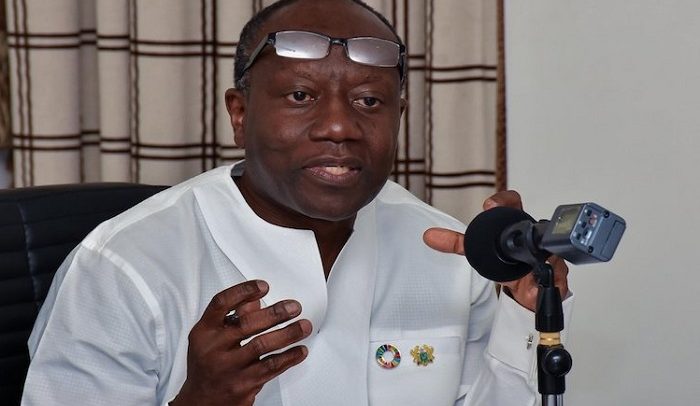Ken Ofori-Atta
Fitch Solutions, the world-acclaimed institution providing insights on counterparty risks, debt market and macro intelligence, has ranked Ghana as the best country for investors to do business in West and Central Africa.
According to the ratings agency, Ghana’s country overall risk index of 53.9 % takes it ahead of countries like Cameroon, Gabon, Ivory Coast and Nigeria using the political and operational risk index.
This means the country is the best place to invest in the ECOWAS and Central Africa regions since it has lower risk elements for political, economic and operational output.
According to Fitch Solutions, a high score index means a lower risk in terms of investment climate.
Ghana scored 69.7% and 72.9% for the short and long-term political risk, while its 44.1% operational risk index score placed it higher than the other four countries assessed.
Economic Risk
For the economic risk index, Ghana recorded 41% and 51.6% for the shorter and longer term respectively.
The country’s economic performance will, however, trail Ivory Coast—which will become the fastest-growing economy this year— and Nigeria in both the short and long term.
However, Ghana’s overall high rank index pushes it as the best place to do business in West and Central Africa.
It said, “This is largely because the uncertainty associated with investing here, and more specifically the degree to which that uncertainty could lead to losses for investors is very low”, adding that “the country’s economic pointers have looked good this year despite Covid-19.”
“Growth is expected to hover around one per cent this year and make it a top performer globally, while inflation and exchange have remained low and relatively stable”, adding, “Though the debt level is worrying, it is not likely the nation will default in its loan repayment.”
General Election
It said, “The country will be electing a president and 275 parliamentarians on December 7. This follows the gradual end of tenure of the current President Nana Addo Dankwa Akufo-Addo, who is seeking a re-election. So far so good as the nation has not experienced any major troubles in terms of the political climate.”
B Rating
On October 15, Fitch Ratings affirmed Ghana’s Long-Term Foreign-Currency Issuer Default Rating (IDR) at ‘B’ with a stable outlook.
According to the ratings agency, their affirmation “reflects Fitch’s expectation of a gradual recovery in economic performance and fiscal revenue following the coronavirus pandemic shock, a stabilisation of debt/GDP and the ready availability of external and domestic financing sources.”
It had said that “this is balanced against the risk that post-election fiscal slippages or a weaker economic recovery will worsen fiscal and external debt metrics.”
“The pandemic has affected Ghana’s domestic economy through lockdowns on its two biggest cities and the related global shock has impacted trade and financial flows. The largest impact was likely to have been felt in 2Q20, but at -3.2% of the contraction in GDP was less than we had anticipated.”
It also said that “the mining sector, which includes oil and gas, and manufacturing experienced the steepest contraction, while agriculture, construction and transport recorded positive growth.”
“We forecast 2020 growth at 2.0%, returning to 5.0% by 2022, although low global oil prices will inhibit investment in Ghana’s oil infrastructure and could weigh on medium-term growth. The oil sector had been a major growth contributor over 2017-2019,” Fitch said.
It also said, “Inflation accelerated to over 11.0% in May, but has slowed in recent months. Fitch forecasts 2020 average inflation at 9.7%, well above the forecast ‘B’ median of 4.5%, but lower than Ghana’s five-year average of 12.9%.”
Fitch said indicated that “the pandemic shock has exacerbated Ghana’s already weak public finances. The government presented a revised 2020 budget in July as part of its mid-year budget review (MYBR), which contained an additional GHS11 billion (3% of forecast 2020 GDP) in Covid-related expenditure.”
“It also forecast domestic financing costs to rise by approximately 2% of GDP. The revised budget was approved by Parliament along with the government’s request to suspend the fiscal rules contained in the Fiscal Responsibility Act of 2018, which includes a fiscal deficit ceiling of 5% of GDP.”
By Ernest Kofi Adu


